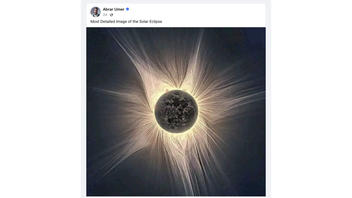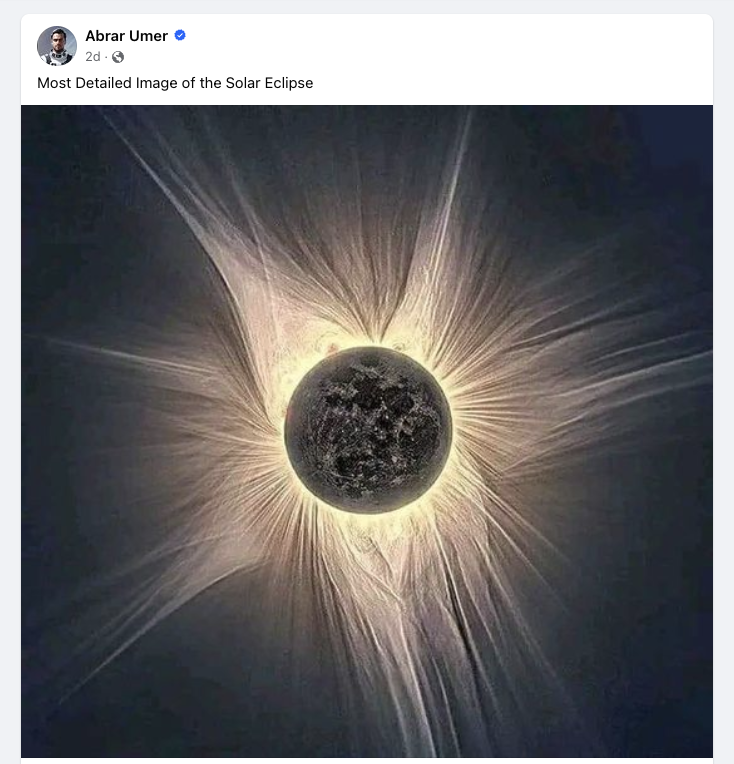
Does a viral image on social media show the 2024 solar eclipse? No, that's not true: The photo appeared online almost seven years before the April 9, 2024, solar event. It was taken by an astrophotographer who captured the previous eclipse that was seen in North America.
The claim appeared in a post (archived here) on Facebook where it was published on April 9, 2024. The caption opened:
Most Detailed Image of the Solar Eclipse
This is what it looked like on Facebook at the time of writing:
(Source: Facebook screenshot taken on Thu Apr 11 14:33:23 2024 UTC)
The post's wording included the definite article "the," implying that the image showed the most recent solar eclipse that took place on April 8, 2024, in North America (archived here.)
Some posts (saved here) took the claim further and claimed that NASA's James Webb space telescope took the photo.
However, a Google reverse image search showed that one of the earliest versions of the image was uploaded on the internet on September 6, 2017 (saved here), by an account of astrophotographer Sebastian Voltmer (archived here.) The detailed caption providing technical characteristics of the photo said that it was that year's solar eclipse (archived here.) Two days before the 2024 solar eclipse, Voltmer republished (saved here) a vertically rotated version of the image on X, formerly known as Twitter.
The Webb telescope couldn't have produced this 2017 photograph. It was launched into space to orbit the sun much later -- on December 21, 2021 (archived here.) Furthermore, as the NASA website specifies (archived here), "Webb was placed in orbit around the Sun at a special location where its sunshield can block both the Sun and Earth (and Moon) all the time." Designed to detect invisible-to-bare eyes-infrared light waves (archived here), this way the telescope is protected from overheating so the sun's heat -- or its own heat -- does not blind it.
Other Lead Stories fact checks about the 2024 solar eclipse can be found here. Stories about science are here.
















